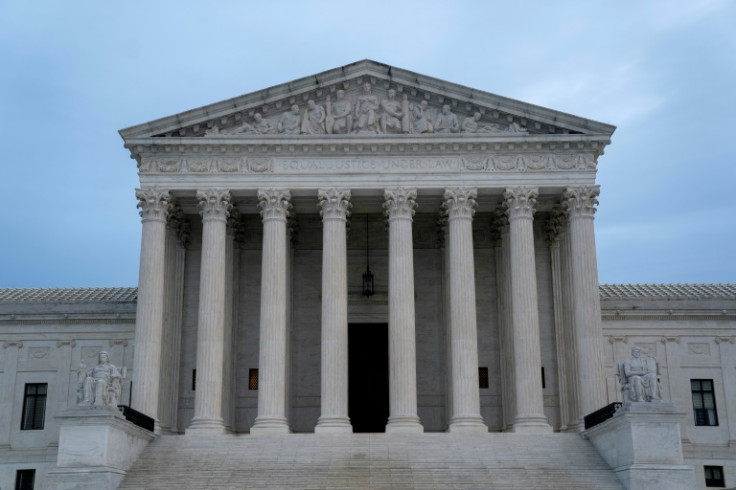Supreme Court Agrees To Hear Trump Presidential Immunity Claim

The US Supreme Court agreed on Wednesday to hear Donald Trump's claim that as a former president he enjoys immunity from criminal prosecution, as the 2024 White House candidate faces dozens of state and federal charges.
The court scheduled arguments in the high-stakes case for the week of April 22 and said Trump's trial on charges of conspiring to overturn the 2020 election would remain on hold for now.
Trump had been scheduled to go on trial for election interference on March 4 but the proceedings have been frozen as his presidential immunity claim wound its way through the courts.
The Supreme Court said it would address the question of "whether and if so to what extent does a former President enjoy presidential immunity from criminal prosecution for conduct alleged to involve official acts during his tenure in office."
It will be among the most consequential election law cases to reach the court since it halted the Florida vote recount in 2000 with Republican George W. Bush narrowly leading Democrat Al Gore.
A three-judge appeals court panel ruled earlier this month that the 77-year-old Trump has no immunity from prosecution as a former president.
Trump's claim to be immune from criminal liability for actions he took while in the White House is "unsupported by precedent, history or the text and structure of the Constitution," the judges said in a unanimous opinion.
"We cannot accept that the office of the Presidency places its former occupants above the law for all time thereafter," they said.
The ruling was a major legal setback for Trump, the frontrunner for the 2024 Republican presidential nomination and the first ex-president to be criminally indicted.
The appeals court put the immunity ruling on hold to give Trump the opportunity to appeal to the Supreme Court.
Special Counsel Jack Smith filed the election conspiracy case against Trump in August and had been pushing hard for the March start date for his trial.
Lawyers for the former president have sought repeatedly to delay the trial until after the November election, when Trump could potentially have all of the federal cases against him dropped if he wins the White House again.
Trump also faces 2020 election interference charges in Georgia, and has been indicted in Florida for allegedly mishandling classified information.
He was impeached twice by the Democrat-controlled House of Representatives while in office -- once for inciting an insurrection -- but acquitted both times by the Senate.
The immunity case is one of two election-related cases before the Supreme Court.
The Colorado Supreme Court barred Trump in December from appearing on the Republican presidential primary ballot in the state because of his role in the January 6, 2021 attack on the US Capitol by his supporters.
Trump appealed the Colorado ruling and the conservative-majority Supreme Court heard arguments in the case in early February.
Both conservative and liberal justices expressed concern during arguments about having individual states decide which candidates can be on the presidential ballot this November.

© Copyright AFP {{Year}}. All rights reserved.





















